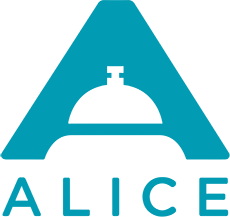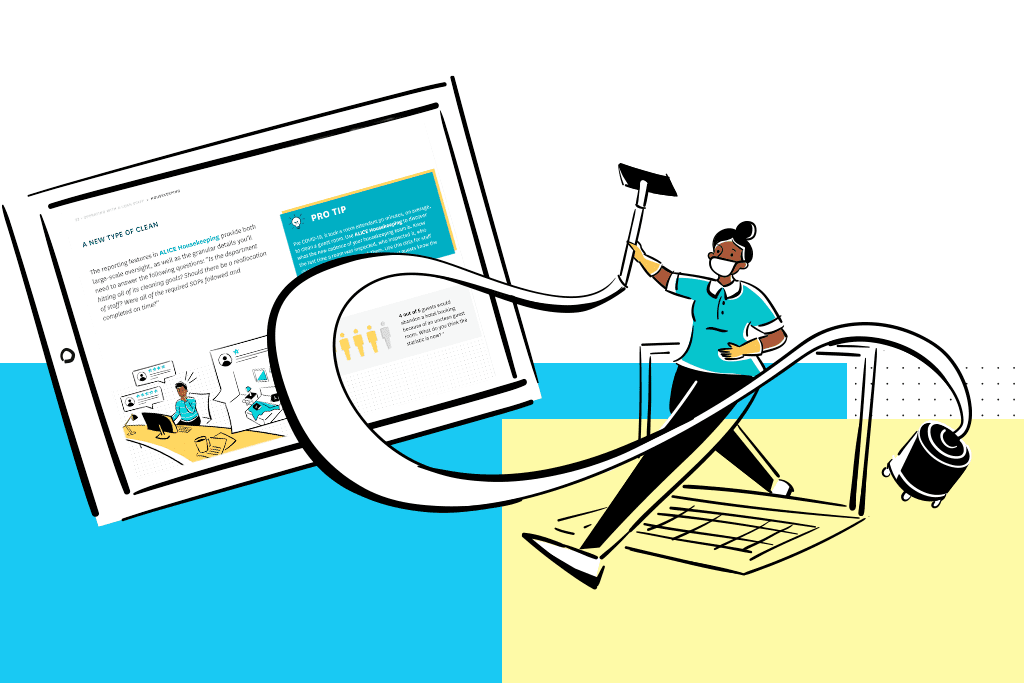Skift Take
Looking toward Covid-19 recovery, health and safety have become top priorities for all sectors of the travel industry, especially hospitality. To help ensure guest confidence, hotels must manage new protocols while working with leaner staffs, making smart hotel management software more critical than ever.
This sponsored content was created in collaboration with a Skift partner.
Covid-19 has transformed the travel industry in lasting ways. Delivering contactless hospitality while operating with less staff support requires technology solutions that help both guests and employees manage new health and safety protocols with ease.
A new eBook by ALICE, “Post Covid-19 Hotel Operations,” offers actionable advice and useful guidelines on how to manage Covid-19 response guidelines.
It goes without saying that Covid-19 has been an enormous challenge to the travel industry since it emerged globally this year. With borders closed and flights grounded, the industry has endured shifts and turns, and encouragingly, restrictions have since loosened in many parts of the world, with travelers expressing growing confidence in returning as long as adequate health and safety measures are in place.
A recent industry survey from Travelport indicated 73 percent of respondents hoped to see a program of deep cleaning and sanitization, accredited by a new industry safety standard, as the key catalyst for them choosing to book accommodation again. It’s clear that health, safety and cleanliness are the top concerns for would-be hotel guests post-recovery.
The challenge now revolves around how hotels might transform their operations to deliver contactless guest experiences: streamlining their operations while reducing costs, yet staying organized and effective with fewer resources.
“There are many clear and useful guidelines that have been written about post Covid-19 hotel operations,” said ALICE President Alex Shashou.
“It seems like there is fair consensus on what to do but, as is often the case with any set of standards, what’s missing for hotel managers is the how.”
ALICE has worked with industry leaders and the hotel community to offer a few salient solutions on how to deliver contactless hospitality with a lean staff.
In this eBook, key solutions include:
Reaching Guests in Advance of Their Arrival to Relay New Check-In and Cleaning Procedures
To quell the fear around returning to hotels safely, the challenge now is to educate guests in advance of their trip of the cleaning, sanitization and Covid-19 response plan that the hotel has in place. Communication is paramount, and can be achieved neatly through a centralized digital guest messaging service.
Expediting Check-Ins and Messaging Guests Before and During Their Stay
Post-recovery, solid communication will remain the throughline of every hotel stay. A central guest messaging application can help streamline the entire check-in process to ensure minimal wait time at the reception desk, while speeding up any requests once checked in. Through technology, what was once done in person can now be accomplished with minimal contact between staff and guests.
Tracking Guest Requests More Efficiently
Contactless real-time guest messaging services can track all mid-stay requests, especially in-room dining, which can be ordered via text message, with guests able to nominate their delivery preference: either lobby pick-up, or placed outside their door.
Facilitating Guest Service Recovery More Quickly When Complaints Are Made
Through new communication technology, interaction with guests can become instantaneous, helping to attend to any qualms or complaints made throughout their stay. This serves a dual purpose: streamlined service, as well as contactless connection.
Providing Detailed Housekeeping Checklists
New service delivery platforms can help keep staff on the same page when it comes to delivering fully personalized guest services. Housekeeping can benefit from streamlined cross-department comms, allowing them to attend to every individual room request with efficiency. Better still, the delivery platform can be easily integrated with a contactless guest messaging service, to keep guest communication well tended to.
ALICE’s Hotel Housekeeping Checklists detail a range of measures housekeeping departments must take to keep hotels safe and prepare rooms quickly and efficiently. “Disinfection checklists are designed to supplement existing cleaning protocols. Only EPA Approved Emerging Viral Pathogen or Covid-19 Killing disinfectants should be used,” reads the checklist.
Implementing Preventative Maintenance to Ensure Air Circulation
To keep guests and employees safe, hotels must make sure the air inside common areas is circulating and that fresh air is continuously brought in. Using a solution such as ALICE Maintenance allows hotels to reduce the impact of staff entering guest rooms mid-stay by scheduling additional maintenance checks from room attendants and engineers.
Using Checklists to Manage Standard Operating Procedures
Covid-19 has caused hoteliers to operate in ways they’ve never had to before. Checklists can help to ease overload, apprehension and distraction by allowing staffs to digitally manage and track new Covid-19 operating procedures.
As the eBook indicates, technology is set to play an ever more pivotal role in post-Covid hoteling. While building guest confidence and bringing peace of mind have always been top priorities for hotel operators, digitized operations stand to evolutionize the hotel game, by not only helping keep guests safe and healthy, but by enhancing service experience – measures that will only continue to evolve post-recovery.
This content was created collaboratively by ALICE and Skift’s branded content studio, SkiftX.
Have a confidential tip for Skift? Get in touch
Tags: alice, contactless, covid-19, hospitality, SkiftX Showcase: Hospitality, SkiftX Showcase: Technology, travel recovery

